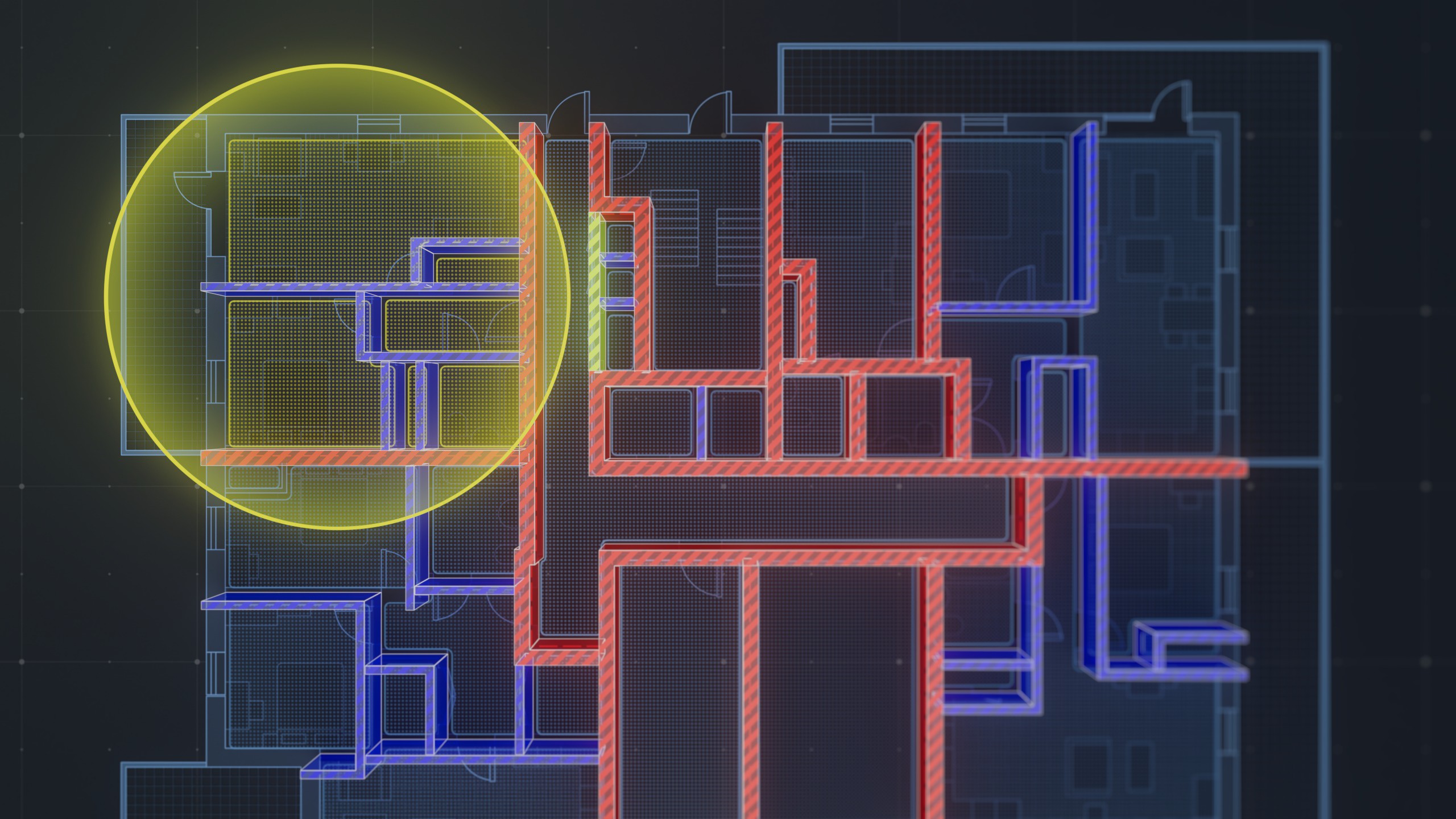Construction management involves overseeing a construction project from conception to completion. The professional in this position, known as a construction manager, is responsible for ensuring the project gets finished on schedule, on budget, and to the required quality standards. They try to accomplish these goals by coordinating with suppliers, contractors, subcontractors, and designers.
Problem-solving and risk management are also prominent parts of the construction project manager's job description. Ultimately, they are responsible for detecting problems before they derail construction and dealing with issues raised by the other parties involved in the process.
A large construction effort can have multiple project leaders. For example, the construction project manager and project engineer have different areas of focus. While the manager oversees everything, the engineer concentrates on the technical aspects of the design and construction.
Here is a closer look at the process of construction management, the responsibilities a manager has, and the strategies and tools they use to bring their projects to successful conclusions.
Stages of Construction Management
Construction managers are responsible for the overall results of the project. They need to oversee every step, from the initial concept and drawings to the final coat of paint. Here is a look at the stages of construction management and the requirements of each phase.
Initiation Stage
Every construction project starts with an initiation stage. The construction manager meets with investors and decision-makers to define the project's scope, set benchmarks, make a budget, and establish a timeline. Plans are often fluid during this phase. Changes can be informed by feasibility studies, talks with the architect and engineers, and input from a legal team.
Finally, the construction manager establishes a team to lead specific aspects of the project. They may also establish a leadership structure so that everyone involved knows who to report to if they have issues or need approval for a decision.
Planning Stage
A construction management plan is a goal-based outline that maps out the construction project from start to finish. In addition to establishing benchmarks to measure progress, the plan lays out strategies and processes for overseeing the project.
The creation of a budget is another essential aspect of the planning stage. Construction budgets are extremely complex, covering everything from labor and materials to transportation, permits, and legal fees. One study found a total of 173 different causes of cost overruns for building projects, so in-depth planning is essential.
Schedule planning is also important. Delays can increase costs, frustrate stakeholders, and harm the reputations of the construction manager, contractors, and others involved in the project. Unfortunately, this is increasingly common — nearly 70% of constructions experience some type of delay, so adding time for such setbacks can be beneficial in many situations.
Finally, there are legal considerations, such as permits, labor rules, taxes, and local regulations. The project manager needs to understand these variables and work with lawyers or other experts to ensure the plan accounts for all relevant laws.
Many professionals are involved in the planning process for major construction projects. Construction management helps to organize all the information and insights and gives one person, the construction manager, the final say in the decisions. This streamlines the entire project, but it is especially useful during planning when so many different people have to provide insights to ensure a successful project.
Equipment/Material Procurement Stage
The procurement stage includes obtaining the necessary equipment, materials, and services for the project. The construction manager determines what equipment, materials, and services are necessary. They then develop a list of exact specifications to show vendors and contractors.
The construction manager needs to account for each material during this phase. They will often rely on a suite of software tools to get dimensions and pricing information. For example, they might rely on concrete estimating software to calculate the cost of the building foundation and a framing estimate tool for the price to erect the structure itself.
Specialized software can even handle specific details, such as the cost of drywall and flooring. The construction manager is responsible for each step until project completion, so they even have to estimate the cost of painting the building’s interior and exterior during the procurement stage.
The next step is to identify suitable vendors and providers or use a bidding platform to solicit estimates from any interested parties. After comparing bids, the procurement team selects vendors, suppliers, and contractors to provide the necessary machinery, materials, and services.
The construction manager oversees the procurement specialists as they negotiate contracts with the providers and set a timeline for delivery. They also obtain submittals from each supplier, vendor, and contractor to every aspect of the project meets their specifications. Typically, the construction manager, architect, or engineer needs to sign off on each submittal before work can begin.
In addition to accounting for any maintenance and upkeep tasks, this stage involves inspecting the materials and equipment when it arrives at the job site to ensure adherence to the contract terms.
Construction Execution Stage
The building work finally takes place during the construction execution stage. With everything procured and scheduled, the contractors and subcontractors get to work on the project.
During this phase, construction management involves ensuring everything happens according to the timeline. If there are issues, the construction manager is ultimately responsible for solving them, as well as answering questions about the project and providing extra information for subcontractors when necessary.
Closing Stage
The closing stages of a construction project involve inspecting the work to ensure that it meets standards laid out by contracts and other agreements. There will also be final inspections by engineers and authorities to ensure the work meets safety and quality standards and has all the necessary elements to comply with regulations and ordinances.
After inspections, the construction manager collects the necessary documentation, ensures every aspect of the work has proper approval and files everything in an archive.
Who Is Responsible for Managing a Construction Project?
The project owners typically hire a single construction manager to oversee every aspect of the project. In some cases, a construction firm will handle the project oversight. However, even in this case, there is typically one person directing the operation.
A construction manager does not have to be a jack-of-all-trades, but they do need to be familiar with each aspect of the project so that they can handle issues and delegate correctly.
Today, many managers rely heavily on software to streamline and automate certain aspects of their job, such as cost estimation. Because budgeting is one of the most important aspects of the job, estimating programs play a pivotal role in the planning and procurement processes.
In addition to these tech tools, construction managers also have a team of experts who can provide advice about specific issues and help with planning, problem-solving, and inspections.
How Does Construction Management Differ Between Projects?
Construction projects can be very different. For instance, building a medical center would involve abiding by specific requirements for ventilation, surfaces, and areas containing potential health hazards. In these situations, construction managers need to ask for and file submittals to ensure that each subcontractor abides by the regulations and meets the requirements.
Other projects, such as housing developments, may have fewer conditions, but vastly different processes and requirements. For most construction managers, the primary distinction is between residential and commercial projects.
Residential vs. Commercial Construction Management
The differences between commercial and residential construction go beyond the different scales. Yes, commercial construction involves more contractors and materials and much larger budgets. However, there are other differences, as well.
- Commercial projects typically rely on steel for framing, while residential contractors typically use wood.
- Permits and building codes are different. For example, commercial buildings need fire exits, fire suppression systems, different ventilation systems, and accessibility features. These are typically not necessary for single-family dwellings.
- Larger equipment is necessary for commercial buildings, but not homes. For example, residential projects typically do not rely on cranes.
- Commercial buildings have larger budgets. However, residential projects may leave less room for error because financing is limited and construction managers may not be able to rely on additional funding if needed.
All construction projects have the same stages, and most rely on a single decision-maker to oversee the project and ensure everything happens on time and according to specifications.




.png)